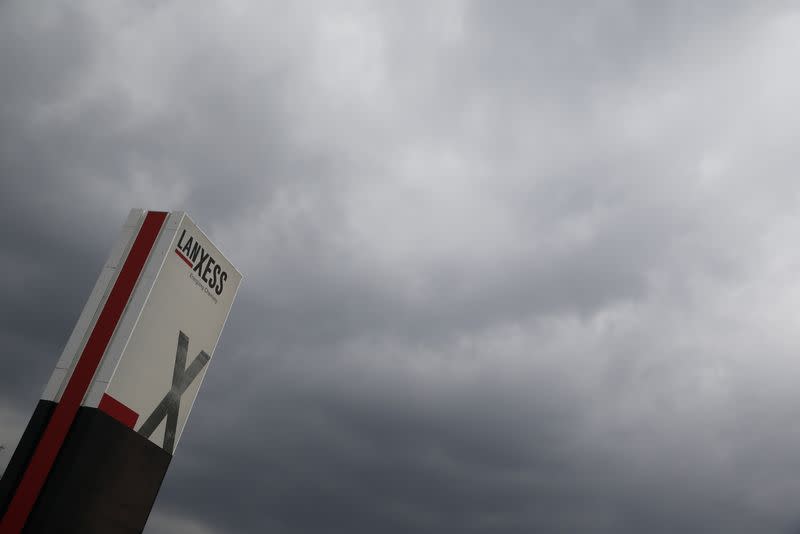Lanxess trims guidance, dividend as lower demand, destocking weigh

(Reuters) - German chemicals maker Lanxess trimmed its annual earnings guidance by 100 million euros ($107.50 million) on Monday on lower demand and continuing destocking by agriculture industry customers.
The firm will also propose a reduced dividend of 0.10 euros per share for 2023 and plans to use saved cash for debt reduction. In 2022, it paid 1.05 euros per share to stockholders.
This is the second time this year that Lanxess has cut its outlook.
It now expects to reach earnings before taxes, interests, depreciation and amortization (EBITDA) pre-exceptionals within a range of 500-550 million euros.
This is down from a previous range of 600-650 million euros and below market expectations for 2023 EBITDA of 571 million euros, according to a consensus by Vara research.
The chemical group's shares dropped 4% on the news.
Lanxess is due to report full third-quarter results on Nov. 8.
Lanxess, which had initially managed to pass rising raw material and energy costs onto customers, is part of a string of German chemical companies that have slashed their forecasts over the year on the back of still high energy prices and lagging demand.
($1 = 0.9302 euros)
(Reporting by Andrey Sychev and Tristan Veyet; Editing by Miranda Murray and Rachel More)

 Yahoo Finance
Yahoo Finance 